DSEAR Training
Quantity: 1
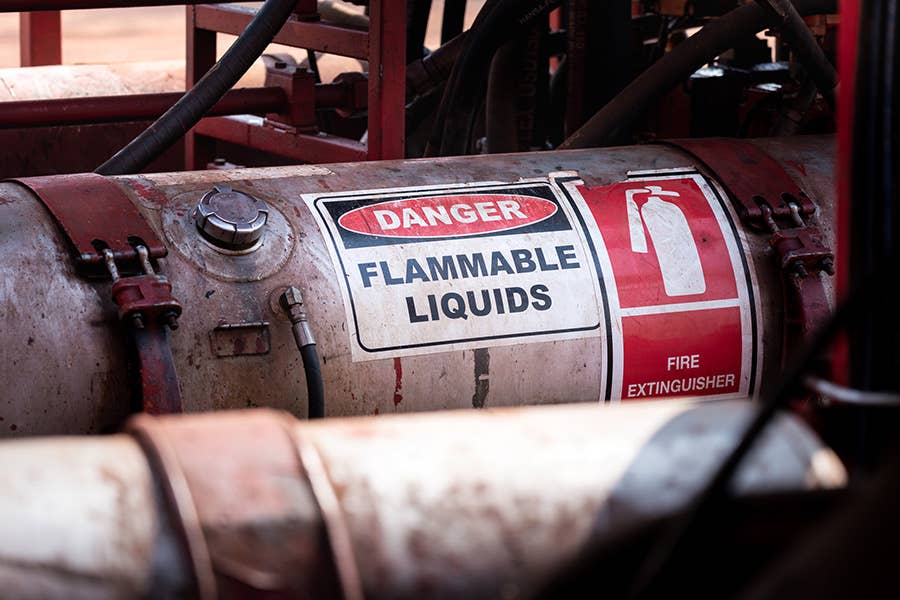
Duration 2 Hours
Last audited 12th September 2023
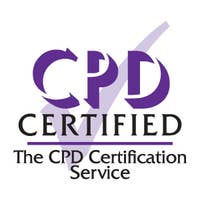


100% online training
Start when you like
Learn on any device (desktop, mobile or tablet)
Instant assessment and result
1 learner per course
Train teams of all sizes
Bulk discounts starting at 10% off 10 courses
Learn on any device (desktop, mobile or tablet)
Includes a 10% discount for 10+ courses
The Dangerous Substances and Explosive Atmospheres Regulations 2002 (DSEAR) require employers to control the risks to people's safety from fire and explosions. Risks can be caused by either using dangerous substances at work or producing dusts, vapours or gases during work.
This DSEAR training course provides you with a full introduction to the requirements of the regulations and will ensure you understand the risks from dangerous substances and explosive atmospheres, know how to carry out a risk assessment, and can implement suitable workplace control measures.
100% online training
Access anywhere
Same day digital certificate
Printed certificate posted next working day
Full audio voiceover
Unlimited assessment attempts
Written in compliance with the Dangerous Substances and Explosive Atmospheres Regulations 2002 (DSEAR)
Developed by health and safety professionals
Accredited by CPD and assured by RoSPA Qualifications
By the end of this course, you will understand:
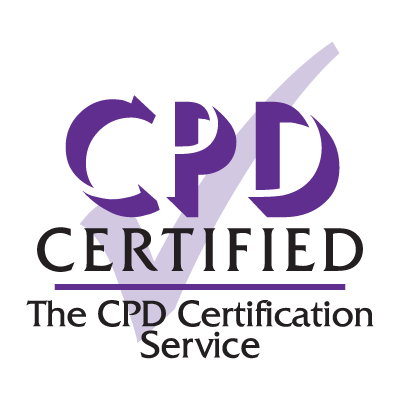
Accredited by CPD
All of our courses are accredited by the CPD Certification Service as conforming to universally accepted Continuing Professional Development (CPD) guidelines.

Assured by RoSPA Qualifications
This course is also assured by the Royal Society for the Prevention of Accidents through their RoSPA Qualifications Assurance System, as providing up-to-date, quality and content-approved training.
Recommended renewal:
1 year
What does this mean? This certificate does not have an expiry date, however, based on industry best practice guidelines there is a recommended renewal period.
Our in-house Learning Designers develop all of our courses to give you and your learners the most engaging training possible.
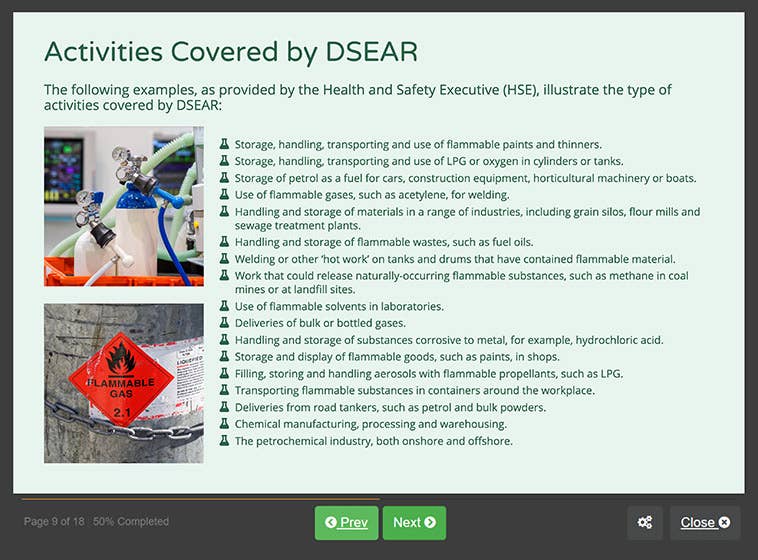
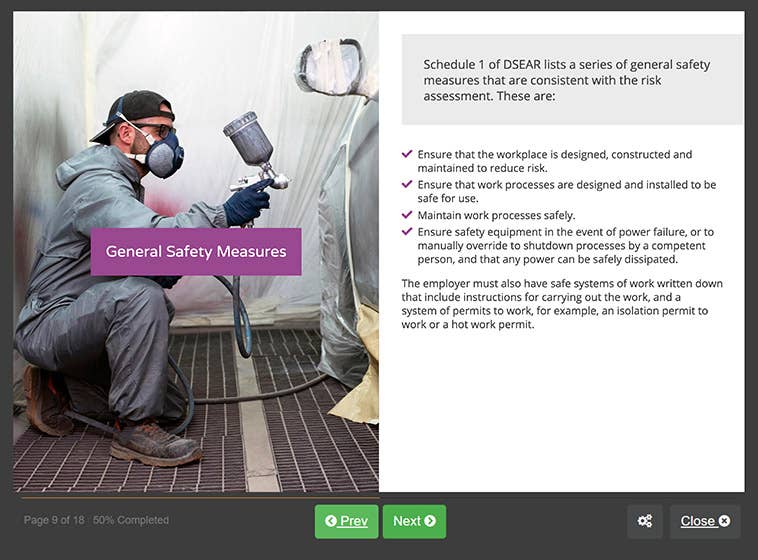
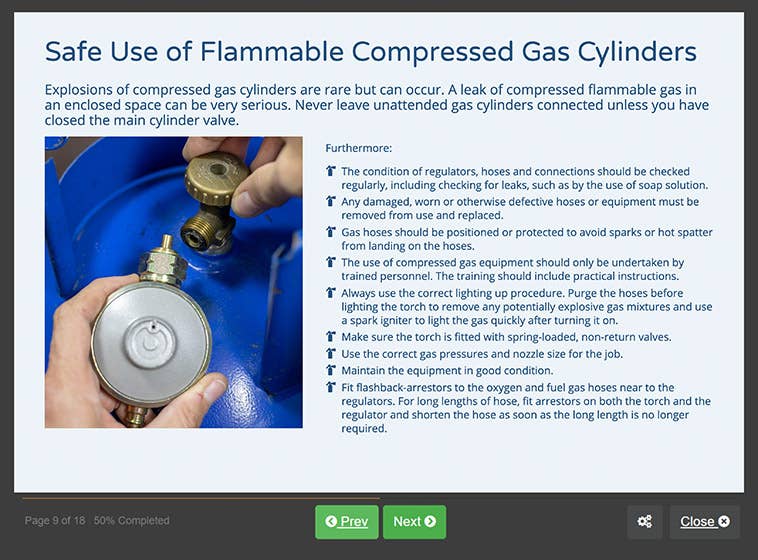
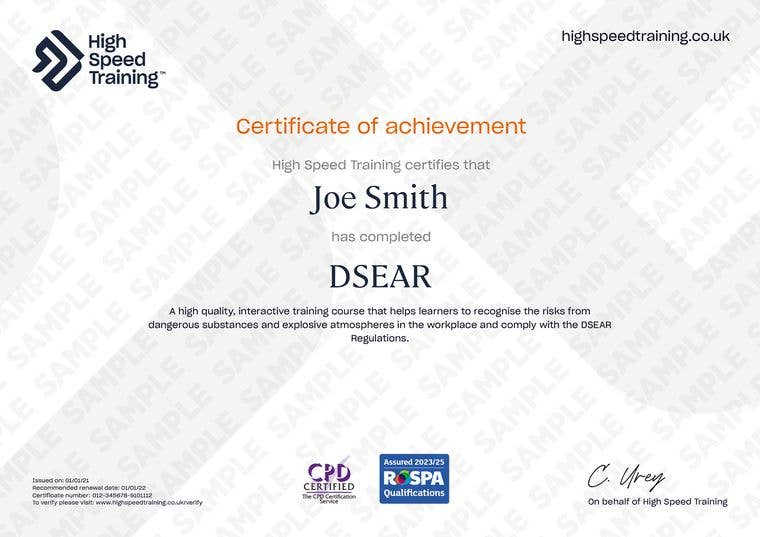




What are dangerous substances?, what are explosive atmospheres?, what are the risks from dangerous substances?, what is DSEAR?, what does DSEAR apply to?, activities covered by DSEAR, the Regulatory Reform (Fire Safety) Order 2005, and the Petroleum (Consolidation) Regulations 2014.
Where does DSEAR apply?, who has duties under DSEAR?, risk assessment, elimination, reduction or mitigation of risks, general safety measures, explosive atmospheres, classification of hazardous zones, equipment and protective systems in hazardous zones, work clothing and personal protective equipment, accidents, incidents and emergencies, information, instruction and training, identification of hazardous contents of containers and pipes, the storage and use of petrol in containers, and duty of co-ordination.
What is a risk assessment?, key definitions, who should carry out a risk assessment?, identifying hazards, examples of dangerous substances, deciding who might be harmed and how, evaluating existing control measures, specific control measures required by DSEAR, emergency arrangements, recording findings, and reviewing and updating the risk assessment.
General fire safety, emergency arrangements, safe storage, transport, handling and use of flammable liquids, causes of fires from dangerous substances, safe storage, transport, handling and use of flammable gases, hazardous substances on vehicles - case study, safe handling and use of gas cylinders, the safe storage and use of petrol in MVR workshops, safe use of petrol in MVR workshops, fuel gases for welding and cutting, and flashback in gas welding and cutting arrestors.
Hot work on tanks and drums, paint spraying booths and rooms, flammable dusts, oxygen, emergency procedures, hazard labelling and packaging, safety data sheets, and information, instruction and training.
The online assessment is taken on completion of the training material. You will be asked 20 multiple choice questions with a pass mark of 85%. The answers are marked automatically so you will instantly know whether you have passed. If you don't pass don't worry! You can take the test as many times as you need with no extra charge.
DSEAR applies to all workplaces and premises where dangerous substances are present, used or produced. This includes places such as industrial premises and workshops, commercial premises, land-based and offshore installations, mines, quarries, construction sites, vehicles and vessels. It also includes the common parts of shared buildings, private roads, paths on industrial estates, roadworks on public roads and domestic houses are also premises if there are people at work there.

In partnership with
Neil Murray
Health and Safety Consultant
Neil Murray is a vastly experienced and highly qualified health and safety professional who has held roles such as Senior Health and Safety Executive inspector, and Principal Inspector for Channel Tunnel construction. He has also held senior roles in an international infrastructure business, a major UK water utility company and a major construction group and provided management consultancy to numerous companies across a wide range of industries.
Neil has a wide expertise in many sectors, including construction, civil engineering, manufacturing engineering, water and waste utilities, education, heritage sites, public safety, rail construction and operation, transport, marine, waste management, engineering design and industrial and facilities management services.
Neil is a QSA auditor for RoSPA and also an author of published guidance on health and safety in the construction of the Channel Tunnel, work at height, major project management, and online training courses.